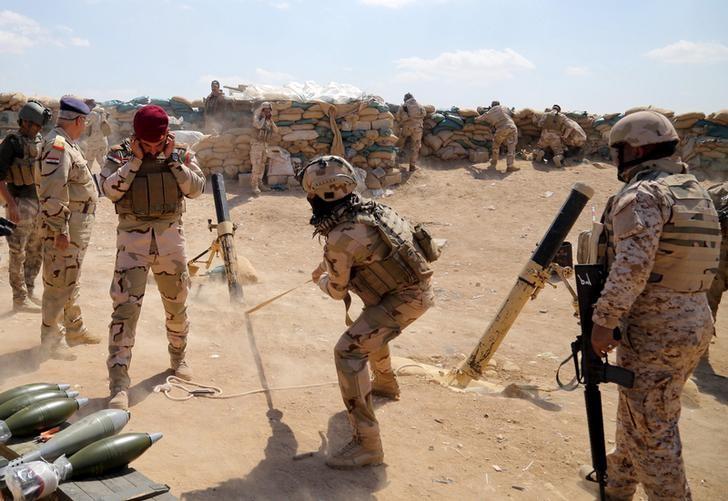Baghdad, Mosul- Based on intelligence information on Iraq’s western gonvernorate, Anbar local authorities announced that ultra-hardline group ISIS, currently being fought in Mosul, has plotted a series of terror attacks against the area. A curfew has been put in place across Anbar’s districts.
“Thousands of extremist fighters have crossed Iraq-Syria borders, coming to ISIS’ aid in fighting off the Mosul offensive, as the terror group aspires to restore control over Anbar lost territory, implementing an improved group strategy ” Member of the Parliament’s Security and Defense Committee Mohammed al-Karbouli told Asharq Al-Awsat.
Iraq military sources said that after government-sanctioned paramilitary militia, People’s Mobilization Forces (PMF), had taken over Tal Afar’s air base, ISIS militants along with their families fled in droves towards Syria border.
Among the ISIS escapees are senior commanders and officials, sources told Asharq Al-Awsat.
On the other hand, Director-General of the International Organization for the Prohibition of Chemical Weapons Ahmet Uzumcu revealed that experts with his organization believed the ISIS hardliners may have manufactured mustard gas used in Syria and Iraq, in an “extremely worrying” development.
The global watchdog tasked with destroying chemical weapons is probing more than 20 reports of the alleged use of toxic arms in Syria since August.
Uzumcu was speaking exclusively to AFP only hours after the U.N. Security Council extended the mandate for another year of a special joint U.N. and OPCW panel to allow them to investigate more reported chemical attacks in Syria.
The OPCW is already “collecting information and analyzing” it, the director general said, to see if the allegations “are credible or not in order to deepen our investigation”.
The panel set up by the U.N., known as the Joint Investigative Mechanism, has already established during its year-long investigation that Syrian regime forces carried out three chlorine gas attacks on villages in 2014 and 2015.
